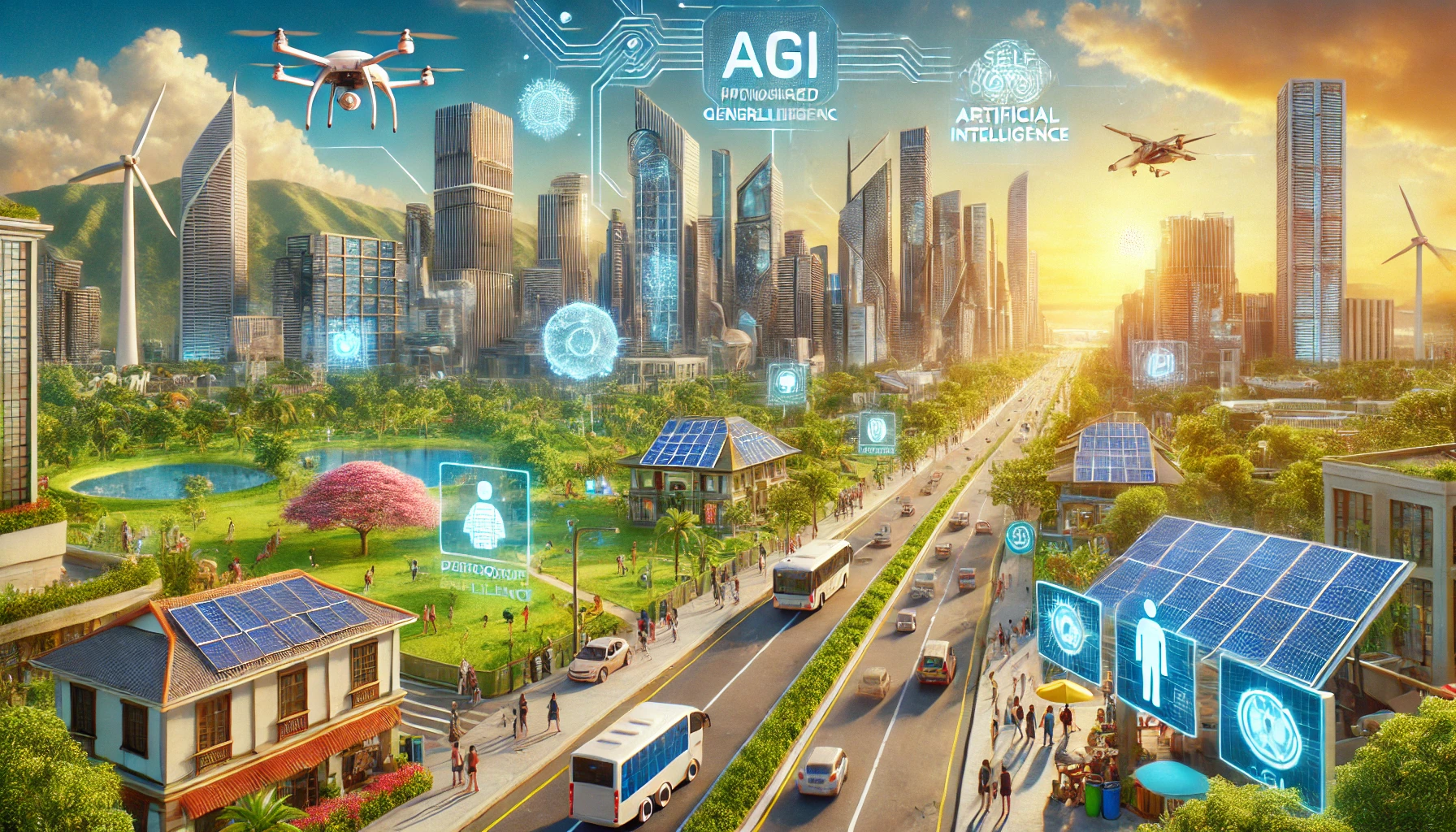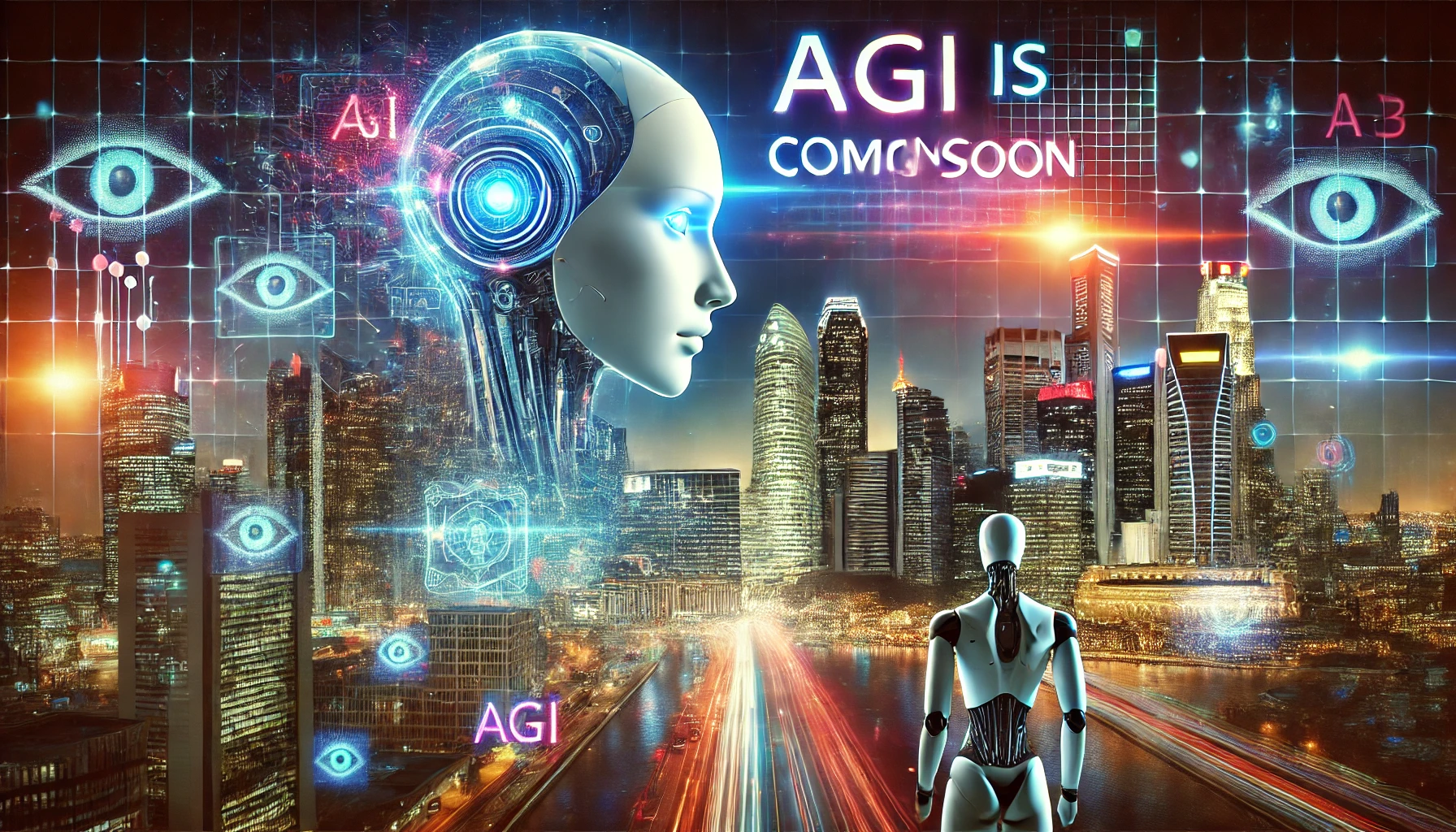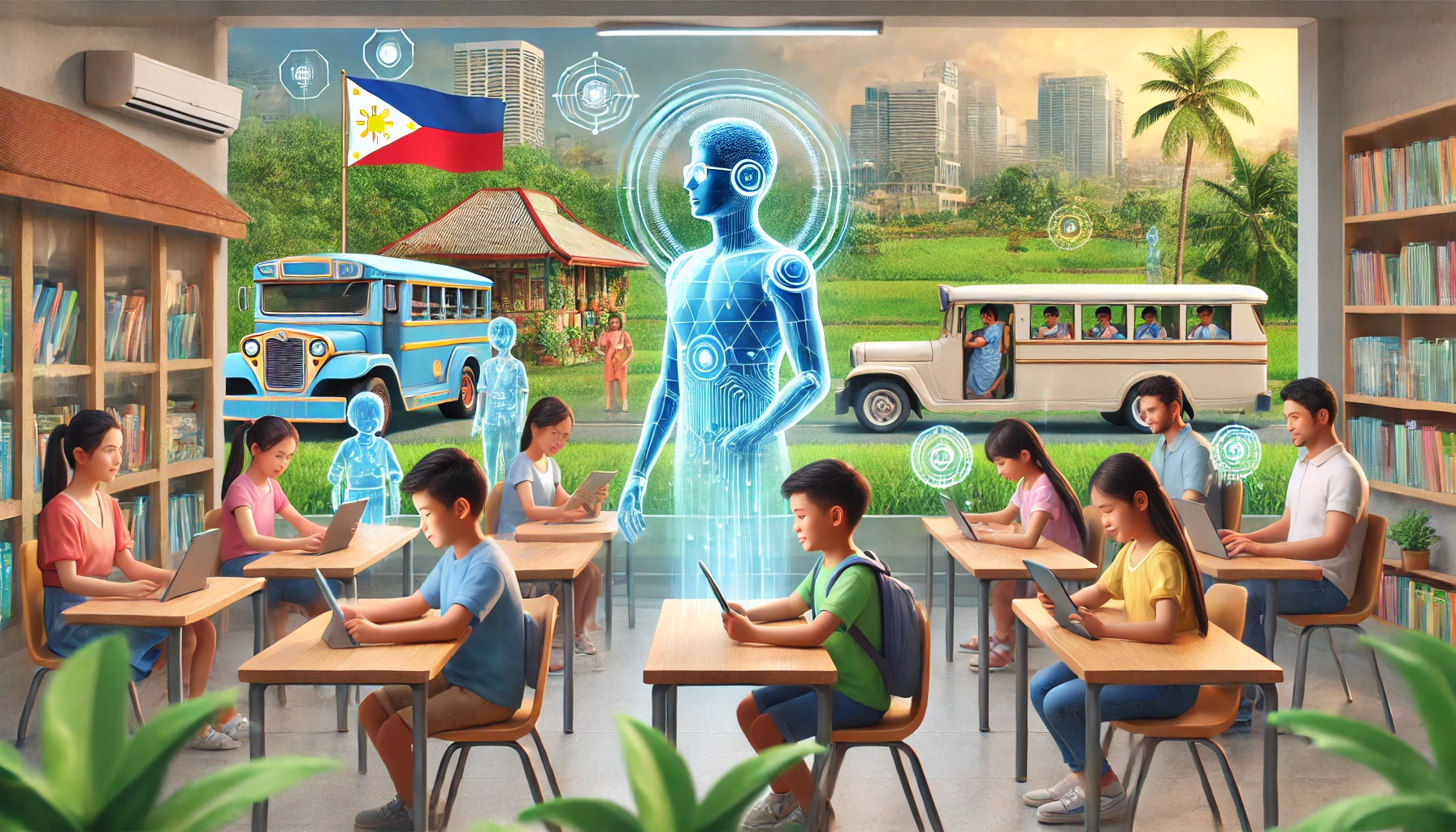The Philippines is a nation on the cusp of transformation, grappling with rapid urbanization, resource constraints, and environmental challenges. As cities like Manila, Cebu, and Davao expand, the need for sustainable and efficient urban solutions becomes more pressing. Enter Artificial General Intelligence (AGI) – a groundbreaking advancement in AI that promises to revolutionize the way we approach urban development. AGI’s ability to process and adapt across diverse domains positions it as a cornerstone for building smart, sustainable cities in the Philippines.
Understanding AGI and Its Potential
Unlike narrow AI, which is tailored for specific tasks, AGI possesses the capability to learn, reason, and adapt across multiple domains, akin to human intelligence. This adaptability allows AGI to integrate and analyze vast datasets, providing holistic insights into urban planning and management. For the Philippines, this means addressing urban challenges with unprecedented efficiency and foresight.
Key Applications of AGI in Philippine Urban Development
1. Urban Planning and Land Use Optimization
AGI can analyze geospatial data, demographic trends, and environmental factors to optimize land use. By predicting growth patterns and identifying underutilized areas, it ensures balanced urban development that minimizes ecological impact while maximizing functionality.
Example: In Metro Manila, where space is scarce, AGI could suggest optimal locations for green spaces, housing projects, and commercial zones, reducing congestion and enhancing livability.
2. Transportation and Traffic Management
Traffic congestion is a significant issue in cities like Manila. AGI can process real-time traffic data, predict congestion points, and recommend efficient routes. It can also design adaptive traffic systems that adjust signals based on vehicle flow.
Example: AGI-powered predictive analytics can guide the rollout of public transport systems, ensuring connectivity between underserved areas and business hubs.
3. Energy Efficiency and Renewable Integration
AGI can optimize energy distribution by analyzing consumption patterns and integrating renewable energy sources like solar and wind. It can also monitor and predict power outages, ensuring uninterrupted services.
Example: For cities like Iloilo, known for its focus on renewable energy, AGI can help manage microgrids, ensuring reliable and sustainable energy for residents.
4. Waste Management and Recycling
By analyzing waste production patterns, AGI can propose efficient collection routes, recycling strategies, and waste-to-energy solutions. It can also educate residents on sustainable practices through interactive platforms.
Example: AGI systems could design a nationwide program for plastic waste reduction, aligning with local government units (LGUs) to implement community-level recycling initiatives.
5. Disaster Preparedness and Climate Resilience
The Philippines faces frequent typhoons, earthquakes, and flooding. AGI can predict weather patterns, simulate disaster scenarios, and recommend infrastructure improvements to mitigate risks.
Example: In flood-prone areas like Marikina, AGI can identify vulnerable zones and suggest drainage enhancements or relocations to safeguard residents.
6. Smart Governance and Citizen Engagement
AGI can enhance government transparency by managing large-scale citizen data securely and efficiently. It can also create interactive platforms for citizens to report issues and provide feedback on urban initiatives.
Example: A unified AGI-powered platform could streamline services like business permits, tax collection, and grievance redressal, reducing bureaucracy and improving citizen satisfaction.
Challenges and Considerations
While AGI holds immense potential, its implementation in the Philippines requires careful planning. Key challenges include:
- Infrastructure Gaps: The country must invest in robust digital infrastructure to support AGI systems.
- Data Privacy: With AGI handling sensitive data, stringent measures are essential to protect citizen privacy.
- Skill Development: Training a workforce capable of managing and maintaining AGI systems is crucial.
- Initial Costs: The deployment of AGI systems may require significant upfront investment.
Collaboration between government, private sectors, and academic institutions can address these challenges, paving the way for AGI-driven urban transformation.
A Vision for the Future
Imagine a Philippines where cities are not only livable but thrive sustainably. Where traffic jams are a relic of the past, waste management is seamless, and disaster risks are minimized. AGI is not just a tool but a partner in realizing this vision, turning urban challenges into opportunities for innovation.
By embracing AGI, the Philippines can lead Southeast Asia in building smart, sustainable cities that prioritize both people and the planet. With the right investments and policies, AGI-driven urban development can ensure a brighter, more sustainable future for generations to come.
[SEO optimized]


